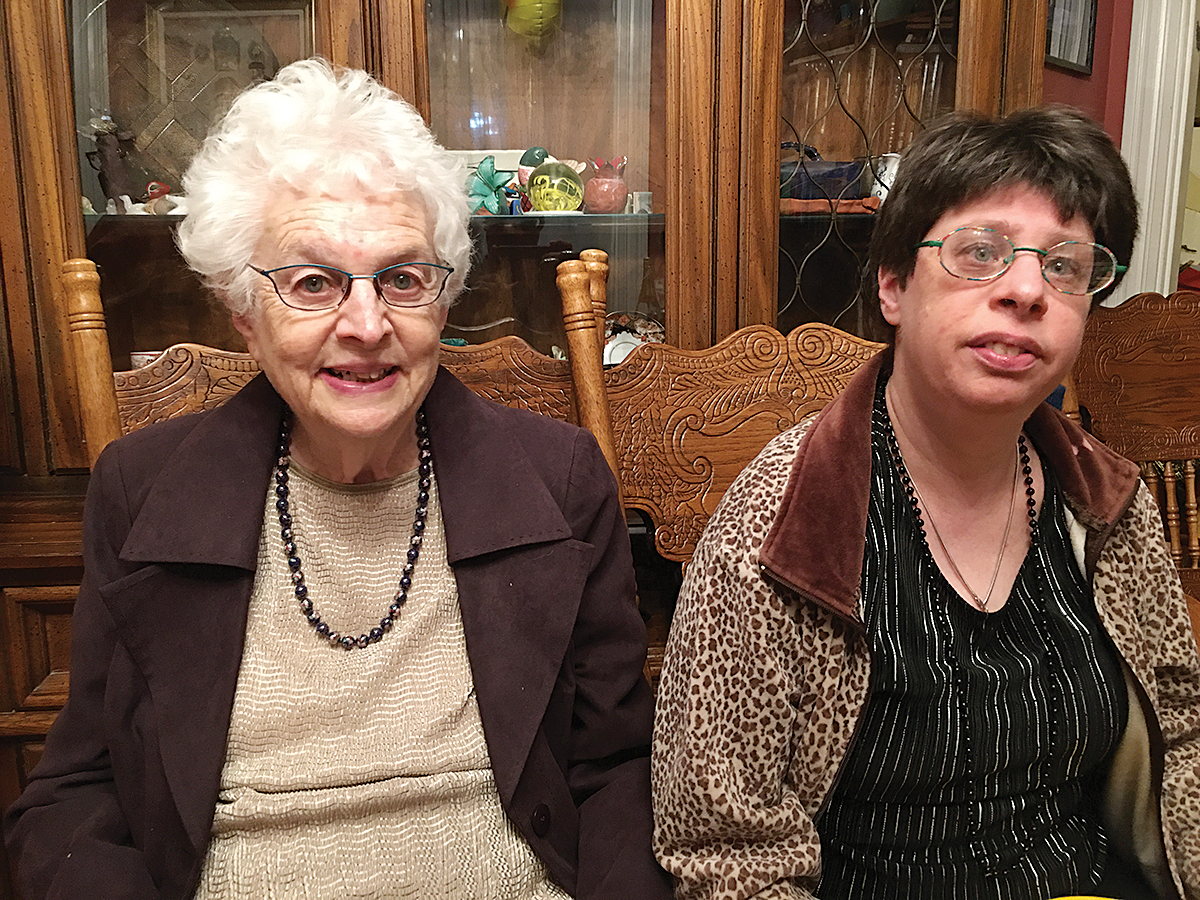
Toby Bresky, of Cleveland Heights, may credit other special needs parents for forging a path, but she walked — or, rather, marched — so others can run.
Bresky’s daughter Jill was born in 1975, the year the Individuals with Disabilities Act (IDEA), formerly called Public Law 94-142 or the Education for all Handicapped Children Act, was signed to ensure the rights of students with disabilities to a free, appropriate public education in the least restrictive environment for their individual needs. It also required Individualized Education Programs, or IEPs, for each child.
“There were parents who were leaders and assertive to bring that revolution about, but [change] doesn’t happen just because you pass a law,” she says. “Sometimes you say the right thing and sometimes you don’t, but you have to take the chance.”
Bresky highlights five important points for parents to consider:
“Do not define your child based on the disability,” she advises. “A label doesn’t tell you the whole picture.” Focus on how the child is functioning. Focus on things they like to do and build on that.”
While Jill has “a rare form of microcephaly and low IQ by testing standards,” Bresky describes her as “sensitive” with “street smarts.” “She picks up on a lot and has a busy, active social life. She loves clothes and money and had a boyfriend. She is good at picking tall, good looking men she could boss around,” she quips. “She likes dancing. She is a good worker.”
“A diagnosis doesn’t mean anything in terms of functioning,” she adds.
Engage in early intervention
“Make sure your child has occupational therapy (OT), physical therapy (PT) and speech therapy if they need it — the earlier the better,” Bresky advises.
“I was very fortunate I kept meeting the right people and she was in the right school,” she adds. She was integrated for gym, music and lunch and was given jobs like taking attendance to the office, and she worked with honor school students who volunteered in the special education class at Canterbury School in Cleveland Heights/University Heights.”
“Find the right fit for your child and family,” Bresky says. “It may not be the same as others [and that’s okay].”
It has to be right for you. It’s wonderful that people want their kids to work in the community. It was my goal, but it wasn’t good for my daughter… Everybody is different. Sometimes the brightest kids don’t achieve.
“The main thing is that [Jill] is happy and she has friends, people to eat lunch with who are like her. For my daughter, activities are very important. She can do puzzles, but she can’t read. She thinks an activity center is like a nursing home, so I plan outings to parks, Synagogue, bingo and free concerts. She and her housemates have a car at the house.
We got funding for a car in the agency’s name with insurance, and the staff drives them. Jill enjoys these activities and visiting family, but after a while she is ready to go home.”
Plan for housing
“If you expect a typical child to leave the house at age 22, treat this child the same way, and save as you would for college,” Bresky suggests.
“The county wait list was long, so after receiving advice from people with connections to the county board, we got four families together to purchase a home, then sought county funding for staff.”
When choosing housemates for your child, Bresky says not to look solely at individuals with the same diagnosis or same level of skill or independence. “Jill’s friends have Downs, autism and are generally less social, but they work well together. What matters most is families who can get along and their primary goal is the child.”
Seek financial advice and
research options
Bresky recommends looking into a STABLE account, which, according to stableaccount.com, is an investment account that allows eligible individuals with disabilities to save and invest money without losing eligibility for certain public benefits programs like Medicaid, Supplemental Security Income (SSI) or Social Security Disability Insurance (SSDI).
“A big thing to protect is health insurance,” Bresky says. “Also, understand waivers.”
Bresky also suggests that parents consult with a special needs attorney/law firm about trust fund options, contracts or other questions.
No matter how much experience one acquires or how much planning is in place, fears can still creep up. Since her husband passed away and she is approaching her 85th birthday, Bresky admits, “I’m scared of what’s going to happen, but I try to get others more involved in activities.” While her oldest daughter lives out of state with five children of her own, Bresky draws on the network she has built over the years and is reassured that Jill has secure living arrangements. She is also working with LiveSpecial on exploring options for developing a volunteer system for adults with developmental disabilities without family in town.

